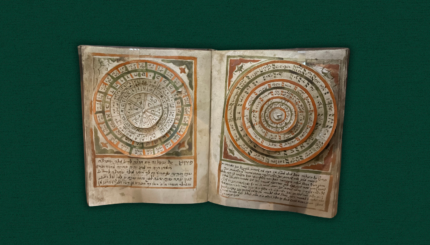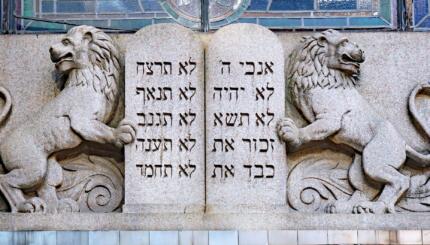Every year, during the ninth month of the Islamic calendar, Muslims around the world observe a month-long fast. This fast, which stretches each day from morning to evening, is referred to by the same name as the month: Ramadan. This year, Ramadan began on August 21 and it continues until September 19.
The Fast That Keeps Going…and Going…
Today, many Jews observe the great fast of Yom Kippur, but most don’t bother with “minor fasts.” For one fifth of the world’s population, however, fasting 29 days in a row is not only doable, but a major part of their religion.
Some of the traditions associated with Ramadan might be particularly interesting to Jews. For example, Muslims break each day’s fast as soon as possible after sunset, with a light meal of water and dates. Then families gather together at home or in a communal space to pray the Maghrib Salat, the fourth prayer service of the day. After that they return home for Iftar, the nightly feast.
This system of coordinating the time of day with human rituals and behavior teaches a discipline which Judaism has also embraced. Traditionally, Jewish fasts end with three stars, not with sunset, as the fasts of Ramadan do. Islam’s regimented order of praying and eating — first a calm, gentle snack, followed by a full meal only after prayer — serves as a model for Jews to follow Jewish traditions in a way that is precise, but beautiful.
Relating to God and Each Other
Ramadan is a holiday thanking God for the gift of revelation, but it doesn’t end with the relationship between God and self. This is reflected in the prayers that conclude each day of Ramadan, which include greetings and blessings to fellow worshipers. The Iftar feast is supposed to be eaten with other people, as a way of making sure everyone has food to break their fast. The human element is a critical part of Ramadan’s rituals, and this can inspire Jews to think about how to link ritual and ethics.
Respect for the individual is also clear in the extreme care the Qur’an takes in giving people flexibility in fasting if they are ill or on a journey. The Muslim oral tradition recounts that Muhammad himself sometimes did not fast if he was on a journey–and that he was likewise critical of someone who endangered his life by fasting. Similarly, Jews follow the concept of pikuah nefesh, or “saving a life,” which prizes life above almost all other concerns.
By observing Muslims keeping Ramadan, and studying the detailed laws of their fast, Jews can be inspired to better see the links between ritual, ethics, and self-respect in Jewish tradition.


